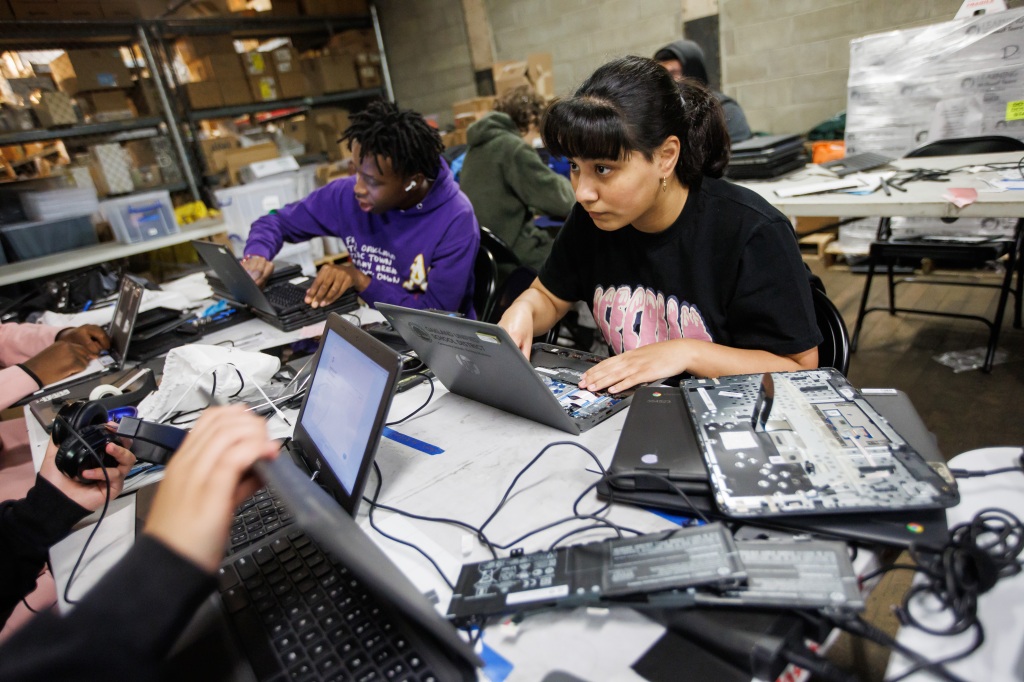There are few things quite as emblematic of late stage capitalism than the concept of “planned obsolescence”.
Just install debian or something.
you think school districts pay their IT departments enough to deal with that shit? If they even have one, at least here in Texas a lot of schools just hire random dudes to come in every so often
yea apparently they only have part-time teenagers lol
Wouldn’t surprise me in the least
The schools would probably get sued out the ass.
Why sued?
Modifying registry software is oftentimes against contract when these schools purchase the laptops wholesale from the manufacturer.
I see
Even if you manage to get the chromebook into developer mode and put a new BIOS to install Linux through USB theres something baout the chromebook firmware that doesn’t like it. I installed Zorin on my personal chromebook and after 2 weeks the hard drive got randomly wiped.
It could also just be Zorin since somehow despite literally just being an Ubuntu reskin it manages to be buggier than pure Ubuntu.
deleted by creator
Capitalist ingenuity.
Is there somewhere that you can pick-up these “death date” laptops?
eBay soon probably, search “not working or for parts.” Or they’ll do the asinine thing and throw them all away.
Capitalists use planned obscelence and perceived obscelence to manipulate market demand and encourages wasteful spending. These is against liberalism where business goals should align with market demand and not that other way. The wasteful spending also allow profits from free riding over former European colonies and child slavery and inheritance thief from Indian Residential fake schools that supposedly ended in 1998 and continued later in secret. They claimed that these rigged market system is good when they are not blaming Communists for allegedly commiting the acts.
Most efficient economic system
Kimathi Bradford, a 16-year-old Oakland tech repair intern, has looked into whether there was a way to replace the outdated Chromebook software with a non-Google brand, but it ended up being a lot of work, Kimathi said, and the open-source replacement wasn’t up to par.
I call major BS on this. Unless chromebooks have even more built in jails and tyrants (like cpu throttling and BIOS emprisonment), the modern GNU/Linux more than satisfies the average student.
Issue is that Chromebooks have “googled” UEFIs specifically meant to lock down the system, and the Chrome OS boot directory is even on ROM, so it’s super difficult to actually get rid of Chrome OS for another operating system. I also imagine you can’t just boot a “regular” full featured Linux distro on it without, like they said, a ton of work.
If you can get mainstream Linux working, then yes it should satisfy the vast majority of students, but as far as I know you need highly specialized distros specifically designed to circumvent the hardware lockouts, which are rather niche and don’t get the same level of development as a mainstream distro.
That’s horrible. It seems like the only viable solution is to ban all proprietary software in schools to prevent this kind of power imbalance in the future.
Rms was always right.
Also has the benefit of getting students used to open source software so they are most likely to continue using it in their careers and adulthood in general. The biggest reason people stay on proprietary software despite all the bullshit is because they’ve always used it and are most familiar with it, and think learning something new would be too difficult, especially if they use it for their jobs and would actually end up having trouble figuring it out at work for a while if they switched. Which would be mostly solved if kids grew up with Linux to begin with instead of Windows or Chrome OS; LibreOffice instead of Microsoft Office, etc.
RISC-V has a similar hope for their project. Currently, proprietary microarchitectures can’t really be used to teach microprocessor design/engineering in school since they’re trade secrets, so students are pretty much stuck with imaginary teaching architectures and have to re-learn the real ones once they get hired at Intel or Arm or whatever. But since many real RISC-V processors are open source, they can cut the middleman and directly be the teaching architecture, and they hope that means tons of engineers graduate already with the knowledge to work with RISC-V in the field.







